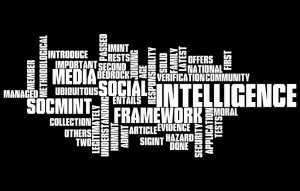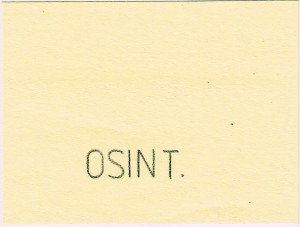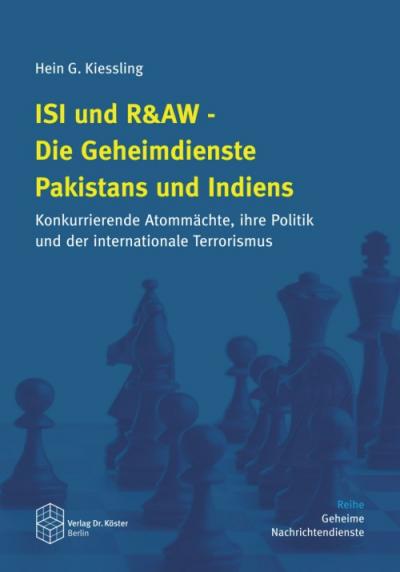Carl Ford, who served as Assistant Secretary of the US Department of State’s Bureau of Intelligence and Research (INR) from May 2001 to October 2003, states in an meanwhile unclassified October 2003 9/11 Commission interview:
[…]
He remarked that intelligence analysis shouldn’t occur in a vacuum (analysts should not be academics who accumulate knowledge for knowledge’s sake). Since someone in government needs new answers or information, analysts’ efforts are always tied to a requirement (even if a policy maker does not yet know they need the information). Rather, the IC is responding to requirements.
[…]
As to why the IC is underperforming on analysis, Mr. Ford stated that the reason is unclear. He suggested that if it was easy and simple, it would have been fixed and that there is no intuitive answer. Still, he elaborated on several factors.
Mr. Ford believes that the first problem is size; the IC is too big. He said the IC is an almost unworkable bureaucracy and that the size is dangerous to intelligence because “creativity and initiative are squelched.”
Second, he opined, the people in charge are those who devised what we have today 10-15 years ago. They got promoted for having built this structure so they cannot now suggest that it needs changing, that “the emperor has no clothes.”
Third, making changes requires an admission that the system/structure has failed.
[…]
He recalled it wasn’t very often that he would say to himself “I didn’t know that, that’s good”.
[…]
We are producing tons of analysis, for no value. Policy makers are not getting what they want and are starving the intelligence satisfies on 10-15% of their intelligence requirements, and the rest is a vacuum. The policy maker needs more answers to the question “what does it mean?”. Mr. Ford tried to refocus his analysts by having them pick an “unanswered question.”
[…]
He would ask them “what’s the question?”‘rather than “what just came in?”.
[…]
Mr. Ford emphasized again that analysts should go to the question first and then to the intelligence for the answer.
Mr. Ford averred that the policy makers don’t realize that 90% of their queries could be filled without adding more money or people to the equation if analysts just focused on those areas.
[…]
He opined that the policy makers have given up on trying to get what they want. They have fostered this environment of lack of trust. They are saying, “just give me the current intelligence, I don’t care what you think about it, I can analyze it myself.”
[…]
They focus on “time” instead of “quality”.
[…]
It is easier to produce daily information than knowledge.
[…]
The policy maker needs more detail, but not so micro a view as we have done with the influx of more analysts.
[…]
Instead of 5 or 150 working independently, analysts should all be part of a team answering the questions the seniors have.
[…]
He said that the intelligence community on the other hand has chosen the “education model” rather than the “science model” and that the education model is worse than what we already have. In the education model, each teacher is on his/her own.
[…]
One analyst, no matter how good, cannot deal with the questions that policymakers have; a team of 10 is needed. In this regard, he added that analysts could work the feedback loop with collectors, but they are not doing it. They just take what they get and answer the easy questions. And they are not being pushed by the customer who is asking easy questions or not asking any. So the analysts opt to do the easy thing.
Mr. Ford does believe parts of the community are doing well, particularly collectors and reporters.
Mr. Ford opined that 90% of the questions policy makers have cannot be answered by current intelligence. He said, you can put all the “dots” we have together and it still doesn’t add up; “it’s not about the dots.” Mr. Ford remarked that in his 40 years in intelligence/government putting dots together was not his world (maybe it works for the criminologist). He said “there are not enough dots.” He continued that if you added more money you might increase the number of dots you could get from say 5 to 20 but there was still a 4000 piece puzzle to fit them into and the analyst doesn’t have the box cover for reference.
[…]
But dots only give the analyst a place to start to look for the answer; they are not the answer.
[…]
Anyone who claims certainty is wrong. An analyst must finally report, “here’s the evidence, here’s my methodology, here’s why I think this is.” They must present and sell their logic. And policymakers must accept that analysts cannot be definitive.
[…]
Analysts will therefore have to supplement what the policy maker is asking for, by providing information to answer questions that the policymaker did not but should have asked.
[…]
He maintains that we can’t even scratch the surface of what we’ve collected, so one can’t even say how good collection really is.
[…]
We could cut the budget and still improve analysis. He went on to say that we could take the CIA/DI, cut it by 75%, and it would take months or years before the policy makers would realize it.
[…]
Mr. Ford believes we’ve been doing analysis badly for a long time and we’re focused on the wrong problems.
[…]
He argued that contrary to the criticism that INR is too political, it is really the least politicized in the IC.
[…]
Mr. Ford believes that the parts of the Ie work better than the whole.
[…]
The IC is just too big. Mr. Ford proposes dis-aggregation instead of centralization. He thinks the notion of “community” is an anachronism.
[…]
He suggested that every intelligence officer should serve at least one tour as a collector or processor at the operational level before they become an analyst. Mr. Ford opined that analysts are arrogant and the IC tends to hire those from outside with academic credentials instead of transitioning our collectors to analysis. He believes that real world experience is very important for analysis. Now people straight out of college “are dumped into it.”
[…]
Analysts need to do apprenticeships.
[…]
The centralization.question could be just a distraction. There is so much wrong that could be fixed without looking at cosmic issues – the cosmic issues are just a distraction.
[…]
Mr. Ford continued that the greatest intelligence successes he saw in the last 20 years had been tactical, getting intelligence to shooters.





Post a Comment